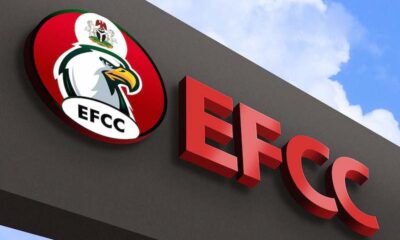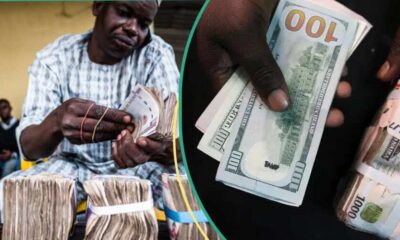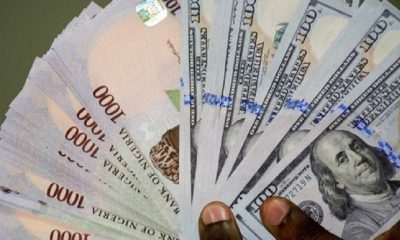Business
Forex crisis, declining investment threaten Nigeria’s 70% broadband target

Forex crisis, declining investment threaten Nigeria’s 70% broadband target
Nigeria’s efforts to achieve a 70% broadband penetration by 2025 are facing significant challenges due to the ongoing foreign exchange crisis, which is affecting further investments in telecom infrastructure.
The capacity of operators to invest in equipment has been diminished by the declining value of the Naira, coupled with a consistent decrease in Foreign Direct Investments (FDIs) into the telecom industry.
According to recent data released by the National Bureau of Statistics (NBS), FDIs in the telecom sector experienced a sharp decline of 70.5% in 2023.
The Minister of Communications, Innovation, and Digital Economy had last year declared that the country would need an estimated $2 billion investment to lay fiber optic cables nationwide to meet the broadband target. However, in the same period, the telecom industry managed to attract only $134.75 million in FDIs.
Local operators are also struggling to import new equipment for network improvement and expansion, as the dollar-to-naira exchange rate soars.
Impact of forex instability
According to Mr. Gbolahan Awonuga, the Head of Operations at the Association of Licensed Telecommunications Operators of Nigeria (ALTON), the significant rise of the dollar from about N460 last year to over N1,600 this year has disrupted the operators’ plans for importing equipment.
READ ALSO:
- Submit financial returns monthly or risk sanctions, CBN mandates microfinance, mortgage banks, DFIs
- How luggage stopped me from joining ill-fated chopper – Wigwe’s PA recounts ordeal
- Jigawa Assembly impeaches 2 principal officers, suspends 4 LG chairs
Furthermore, the Chief Financial Officer of MTN Nigeria, Mr. Modupe Kadri, discussed the company’s infrastructure investment plans for this year, noting the difficulty in justifying new investments to shareholders due to the forex issue. He stated,
- “The reality is that as a business, you continue to explore your options. We have a strict capital allocation framework that allows us to determine where we allocate our CapEx. However, the ultimate bottom line is the return to the shareholders.”
- “Now, if there is no investment case due to the terrible macroeconomic conditions we face, it becomes challenging to justify the necessary investments at the governance level. Nonetheless, we have made significant investments in enhancing our 4G and 5G networks, and our fiber assets are also increasing,” he added.
Kadri also lamented the current instability in the country’s forex market, emphasizing the critical need for forex stability to enable businesses to plan effectively and mitigate the impact of forex fluctuations on their bottom line.
Declining FDI
In a conversation with Nairametrics regarding the dwindling investments in the telecom industry, the Chairman of the Association of Licensed Telecommunications Operators of Nigeria (ALTON), Engineer Gbenga Adebayo, expressed significant concern. He pointed out that the telecom sector in Nigeria requires increased investment to thrive.
- “As indicated by last year’s National Bureau of Statistics (NBS) report, which highlighted a decline in Foreign Direct Investment (FDI), we are apprehensive that this trend may persist. The dynamics of the exchange rate are influencing many aspects of the industry,” he explained.
Adebayo elaborated on the investment downturn, noting,
- “The current investment figures are a clear indicator of the challenges facing the industry. This is adversely affecting the expansion of network infrastructure, and we fear that FDIs may continue to decline, further impacting the performance of operators.”
He also mentioned that, apart from the reduction in investment, the limited access to foreign exchange is impeding the operators’ capability to expand and implement more broadband infrastructure.
70% broadband penetration doubtful
With diminishing investments and the current forex issues confronting telecom operators and businesses across the board, it appears improbable that Nigeria will meet its broadband penetration target by next year.
According to the latest figures from the Nigerian Communications Commission (NCC), broadband penetration in Nigeria was 43.71% at the end of 2023.
This indicates that the country must boost penetration by nearly 27% from now until next year to achieve the 70% target outlined in the National Broadband Plan (NBP 2020-2025), a goal that necessitates swift infrastructure deployment nationwide.
Given the declining Foreign Direct Investments (FDIs) and the forex challenges operators are facing, achieving this target within the remaining 21 months of the Broadband Plan’s timeline seems unattainable.
When the Plan was initiated in March 2020, penetration was at 39.85%, as per NCC data. This means that over the past four years, the country’s broadband access has only improved by 3.86%.
Why it is important
A World Bank report has demonstrated that every 10% increase in broadband penetration can enhance a country’s GDP by at least 4.6%.
This significant finding underscores the importance of swiftly expanding broadband services in Nigeria, aiming to tackle a variety of socio-economic challenges, such as economic growth, broadening the tax base, and enhancing digital literacy and educational standards.
- This rationale motivated the Nigerian government to formulate a second National Broadband Plan (NBP 2020-2025) after successfully reaching a 30% penetration milestone with the first plan (NBP 2013-2018).
- The NBP 2020-2025 sets ambitious objectives, including achieving internet speeds of 15Mbps in rural areas and 25Mbps in urban areas by 2025.
- Additionally, it aims for the interconnection of 90% of all Local Government Areas by fiber and seeks to attain 70% population penetration. Another goal is ensuring that 100% of tertiary institutions are within 5km of a fiber Point of Access.
Moreover, the plan targets reducing the average cost of data to N390/Gb or less and establishing at least one local assembly or manufacturing plant for smart devices within Nigeria, further promoting the nation’s technological advancement and self-sufficiency.
Forex crisis, declining investment threaten Nigeria’s 70% broadband target
Auto
Appeal court takes over NURTW case as NIC withdraws

Appeal court takes over NURTW case as NIC withdraws
The National Industrial Court has withdrawn from a case involving Alhaji Najeem Usman Yasin, Board of Trustees chairman of the National Union of Road Transport Workers (NURTW), and Alhaji Tajudeen Ibikunle Baruwa’s ambition to return as president of the union over lack of jurisdiction.
The industrial court’s decision was made to avoid conflict with the Court of Appeal, where the matter is already being heard.
Before the NIC announced its decision to hands-off the case, the defendants’ counsel, Mr. O.I. Olorundare SAN, had informed the court that the matter is currently before the Court of Appeal, Abuja division, and that the industrial court could not continue to adjudicate on the same matter.
The counsel cited authorities to support his claim, adding that the National Industrial Court does not have concurrent jurisdiction with the Court of Appeal.
The presiding judge, O.O. Oyewunmi, struck out the case, stating that the Appeal Court had taken over the matter and that the Industrial Court must respect the hierarchy of courts.
Alhaji Yasin and six others took the case to the Appeal Court, challenging the decision of the industrial court recognising a delegates’ conference held on May 24, 2023, where Baruwa was proclaimed as President of the union for a second term in office.
With the latest NIC judgement, both parties will now proceed to defend their positions at the Court of Appeal and await the final judgement.
Business
Multichoice shuns court order, proceeds with increase of DSTV, Gotv packages
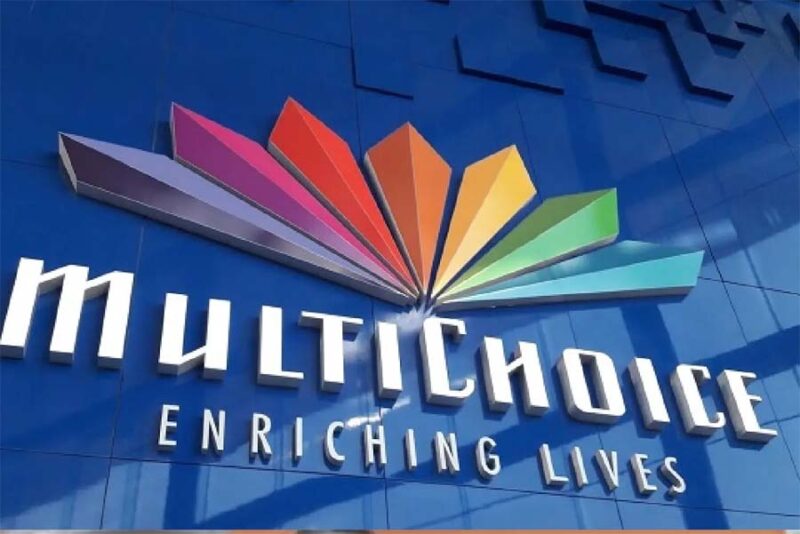
Multichoice shuns court order, proceeds with increase of DSTV, Gotv packages
Despite the intervention of the CCPT, Multichoice Limited has proceeded to increase packages price for DSTV and GOTV as announce on Wednesday last week.
Newstrends had earlier reported that the corporation announced that the new rates will go into effect on Wednesday, May 1, 2024, in a statement.
Meanwhile, on Monday, MultiChoice Nigeria Limited was ordered by the Competition and Consumer Protection Tribunal (CCPT) in Abuja to suspend the planned prices and tariffs hike on packages and services.
READ ALSO:
- Ogun frees 49 inmates to decongest prisons
- JAMB, NCC in talks to produce special SIM for students
- Labour-FG face-off imminent as NLC rejects new salary increase
The three-member tribunal, presided over by Saratu Shafii, gave the interim order following an ex-parte motion moved by Ejiro Awaritoma, counsel for the applicant, Festus Onifade.
News prices includes: DStv, Premium bouquet, the price moved from N29,500 to N37,000; Compact+ from N19,800 to N25,000; Compact from N12,500 to N15,700; Confam from N7,400 to N9,300, among others.
For GOtv users, Supa+ increased from N12,500 to N15,700; Supa moved from N7,600 to N9,600; Max from N5,700 to N7,200; Jolli, from N3,950 to N4,850, among others.
Multichoice shuns court order, proceeds with increase of DSTV, Gotv packages
Business
As controversy over Maersk-FG port investment rages, Onanuga says no $600m deal signed
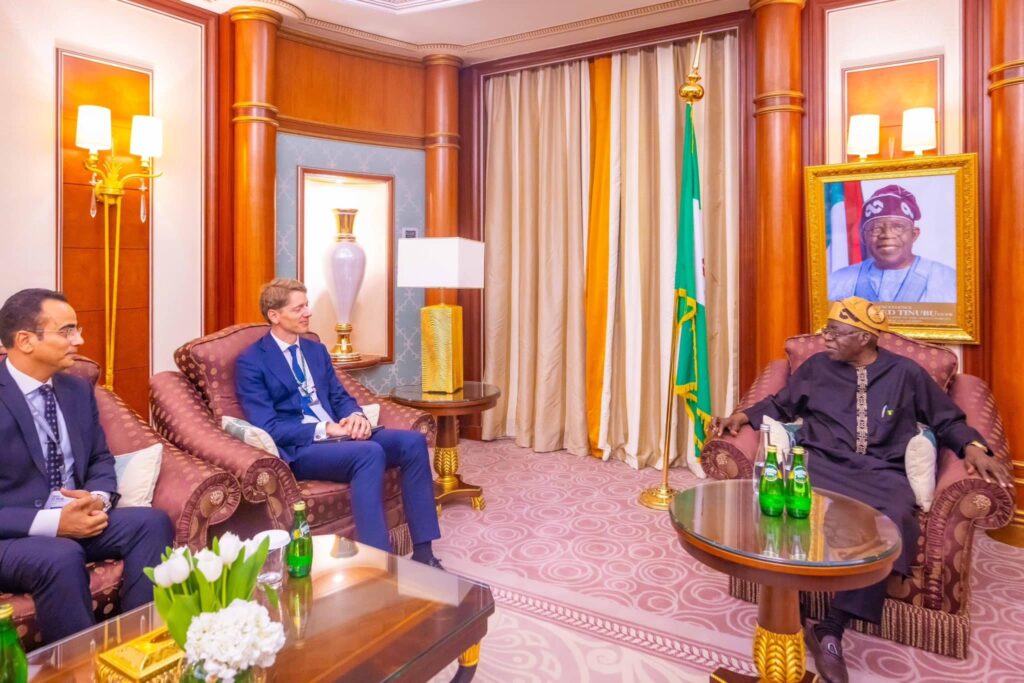
As controversy over Maersk-FG port investment rages, Onanuga says no $600m deal signed
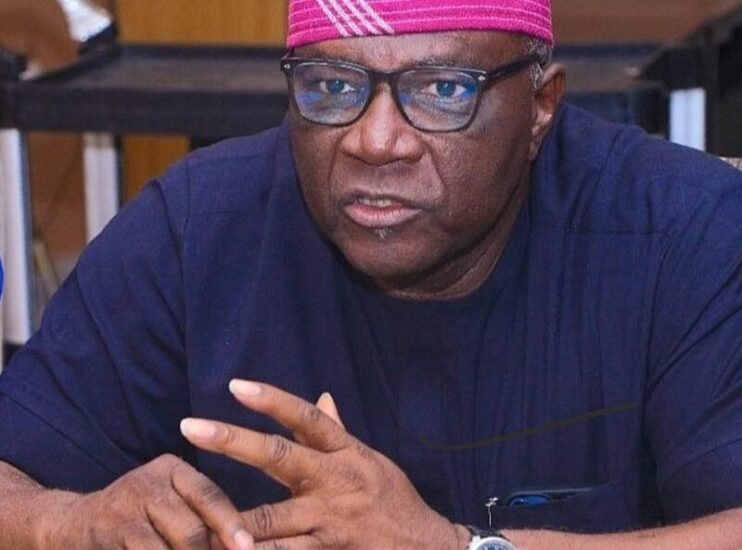
The Nigerian government and a shipping giant, Maersk, have not signed any investment agreement, Bayo Onanuga, special adviser on information and strategy to President Bola Tinubu, has said.
Onanuga was reacting to the controversy surrounding the reported sealing of a $600 million deal for the development of the nation’s seaports.
He said there was only talk “of possible investment in Nigeria” by Maersk.
Interestingly Onanuga had hinted about the deal in a tweet said to have been pulled down after the social media backlash.
After President Tinubu’s discussion with Maersk’s Chairman Robert Uggla on April 28, on the sidelines of the World Economic Forum Special Meeting in Riyadh, Saudi Arabia, the presidency had released a statement announcing that the shipping company had pledged to inject $600 million into the Nigerian seaport industry.
“Danish shipping company, A.P Moller-Maersk plans $600m investment in Nigeria. Danish shipping and logistics company A.P Moller-Maersk has disclosed a planned investment of $600 million in Nigeria to accommodate more container shipping services in Nigerian ports,” Onanuga wrote on X.
In a statement, Tinubu’s spokesperson, Ajuri Ngelale, also said “President Tinubu meets Chairman of Danish shipping giant Maersk, secures $600 million investment in Nigerian seaport infrastructure.” He quoted Uggla as saying, “We believe in Nigeria, and we will invest $600m in existing facilities and make the ports accommodating for bigger ships.”
In response to this. Maersk officials have denied any such agreement and stress no deals have been signed.
Onanuga in a new report by TheCable, an online news platform admitted no agreement on investment had been reached by the two parties.
“I think the statement issued by Maersk did not talk about a deal. There was no deal according to that statement that I read.
“However, there was talk of investment,” the special adviser said.
“No document or agreement was signed, so there was no deal. But there was talk of a possible investment in the country.
“So, go and read the statement again. They never said any deal was signed between the Nigerian government and the Dutch company. There was nothing like that.”
Onanuga however said the shipping company did not expressly deny that there was an investment talk.
He said people are “unnecessarily giddy over nothing.
-

 metro2 days ago
metro2 days agoLabour Day: Nigerian workers are dedicated, resilient, says NURTW leader
-

 Education3 days ago
Education3 days agoBREAKING: JAMB releases 2024 UTME results
-
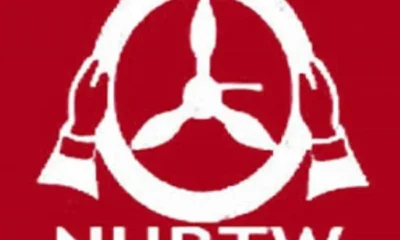
 Auto19 hours ago
Auto19 hours agoAppeal court takes over NURTW case as NIC withdraws
-

 metro4 hours ago
metro4 hours agoSecurity forces, vigilantes arrest kidnapper terrorising communities in Kogi
-

 metro2 days ago
metro2 days agoWoman arrested in Ogun after husband commits suicide
-

 Sports3 days ago
Sports3 days agoFinidi George appointed Super Eagles head coach
-

 News3 days ago
News3 days agoSeun Kuti retracts allegation on P&ID fraud, tenders apology
-
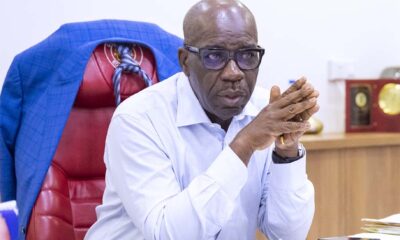
 Uncategorized3 days ago
Uncategorized3 days agoJust in: Edo govt announces N70,000 minimum wage for workers starting May 1

